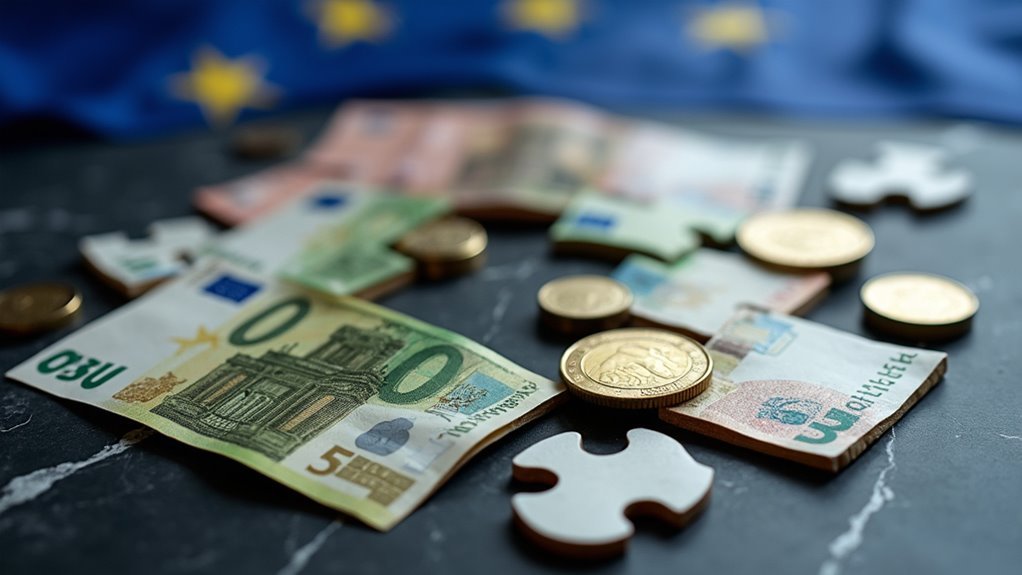The European Union‘s promise of a unified economic powerhouse remains fractured by a maze of regulatory hurdles, cultural differences, and stubborn national preferences. Despite efforts to create a seamless single market, businesses face an uphill battle maneuvering 27 different regulatory frameworks, tax systems, and consumer behaviors. It’s like trying to complete a puzzle where the pieces keep changing shape.
The numbers tell a stark story. While the EU boasts a combined GDP of over €15 trillion, fragmentation costs the bloc an estimated €713 billion annually. That’s roughly equivalent to wiping out the entire economy of Switzerland – just because Europeans can’t get their act together on standardization. Digital businesses particularly struggle with localization efforts for each unique market they enter.
Take the digital economy, for instance. Rather than embracing a unified approach to e-commerce, each country maintains its own rules about everything from data privacy to consumer protection. A small business in Portugal hoping to sell across borders must somehow comply with 26 different sets of regulations. No wonder only 4% of EU companies operate across multiple member states.
Financial services face similar obstacles. Banking licenses don’t automatically transfer between countries. Payment systems remain stubbornly national. Even simple tasks like opening a bank account in another EU country can become a bureaucratic nightmare. Meanwhile, the United States and China race ahead with their large, unified markets.
Language barriers and cultural preferences add another layer of complexity. A marketing campaign that resonates in France might fall flat in Finland. Product packaging requirements differ. Even basic business practices vary considerably from region to region. Addressing these barriers could unlock a potential 7% increase in GDP through enhanced market integration.
The solution requires more than just regulatory alignment. It demands a fundamental shift in how Europeans think about their market. Some progress is being made through initiatives like the Digital Single Market strategy and the Capital Markets Union.
But at the current pace, full market integration remains a distant dream. The cost of this continued fragmentation isn’t just economic – it’s about lost opportunities and diminished global competitiveness. Until Europe truly embraces the single market concept, it will continue to punch below its weight on the world stage.






